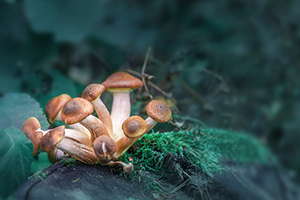In a study published by Agin-Liebes et al in the Journal of Psychopharmacology, researchers found that psychotherapy involving psilocybin—the active ingredient in “magic” or “psychedelic” mushrooms—may aid in long-term relief from cancer-related psychiatric distress.

Photo credit: Getty
Study Background and Design
An earlier randomized controlled trial compared the effectiveness of single-dose psilocybin vs niacin (a form of vitamin B3) plus psychotherapy in patients with cancer-related psychiatric distress. Findings from the earlier trial found that psychotherapy plus psilobycin improved psychiatric and existential distress, quality of life, and spiritual well-being up to 7 weeks prior to crossover. At almost 7 months after crossover, 60% to 80% of participants still reported clinically significant antidepressant and anxiety-reducing responses.
In this study, self-reported symptomatology was followed up over the long term in a group of patients who were included in the earlier parent trial. Fifteen participants agreed to follow-ups at an average of 3.2 and 4.5 years after the administration of psilobycin.
Findings
KEY POINTS
- At both first and second follow-ups, participants reported reductions in feelings of anxiety, depression, hopelessness, demoralization, and anxiety about death.
- At 4.5-year follow-up, about 60% to 80% of participants met clinically significant criteria for antidepressant or antianxiety responses.
- 71% to 100% of patients included attributed positive life changes to psychotherapy plus psilobycin.
At both first and second follow-ups, participants reported reductions in feelings of anxiety, depression, hopelessness, demoralization, and anxiety about death. At 4.5-year follow-up, 60% to 80% of participants met clinically significant criteria for antidepressant or antianxiety responses. About 71% to 100% of patients included attributed positive life changes to psychotherapy plus psilobycin—with many rating it as among the “most personally meaningful and spiritually significant experiences of [their] lives.”
While the study authors concluded that psilobycin-assisted psychotherapy may be an option for treatment of cancer-related psychiatric distress, they added, “Limited conclusions, however, can be drawn regarding the efficacy of this therapy due to the crossover design of the parent study. Nonetheless, the present study adds to the emerging literature base suggesting that psilocybin-facilitated therapy may enhance the psychological, emotional, and spiritual well-being of patients with life-threatening cancer.”
Disclosure: For full disclosures of the study authors, visit journals.sagepub.com.

